- Economy
- Posted
Greenov
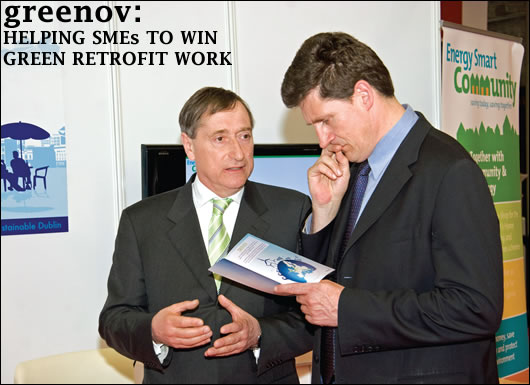
While it’s undoubtedly the case that opportunities abound in the green retrofit market, even the leading companies are faced with obstacles to gaining work in Ireland, let alone abroad. Greenov, as Gerry Wardell of Codema explains, is a new project designed to help Irish contractors and suppliers overcome those obstacles.
‘Innovation’ and the ‘green economy’ are seen by many as key concepts in lifting Ireland out of the current recession. We have been told time and time again that our economic recovery will be export-based and in the construction sector, building contractors and builders’ suppliers who have been hit hard as new developments dry up or grind to a halt are instead looking to the retrofit market to stay in business.
As the energy agency for Dublin, Codema is currently working on a project called Greenov that will support and encourage small and medium enterprises to grow and compete in the field of sustainable renovation. Greenov aims to develop the economic sector of sustainable renovation by stimulating innovation within SMEs across north-western Europe and it will act as a vital networking tool for Irish suppliers. In April, Codema launched a call to create a network of suppliers as part of the project.
A project such as Greenov has never been more relevant, as Irish businesses look towards becoming leaders in the field of sustainable renovation. Green energy has been and is a major growth area, indeed one of the few growth areas in the recent hard times. With money scarce and margins squeezed, it makes sense to do more with less and nowhere is this philosophy more relevant than in our consumption of energy. There is plenty of scope right across the economy for improvements in energy efficiency. There are some things we can do that cost almost nothing, like cutting out wasted energy by switching off equipment that is not being used – this will save money straight away. The savings made can then be reinvested in more efficient light bulbs, highly efficient boilers and other state-of-the-art equipment, and so on.
This growing market for new green energy products has inspired thousands, if not tens of thousands, of entrepreneurs in Ireland to get into this so-called ‘green economy’ and to get a small business up and running. The potential for job creation here is enormous.
But, there are also challenges. One of the major difficulties that Irish entrepreneurs face is the fact that, in the global economy that we now inhabit, Irish businesses are not alone in vying for a share of what is essentially a worldwide market. Purchasers can as easily access a supplier’s web site in Japan or the United States as a supplier just down the road. Those who are smartest and best organised will win the contracts and succeed.
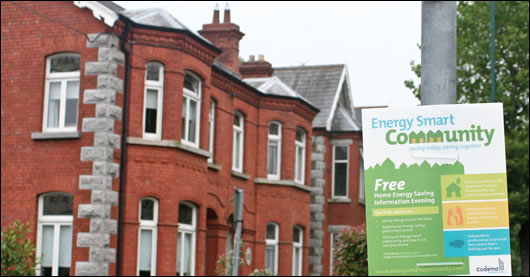
Last year Codema launched the Energy Smart Community scheme which allows Dublin homeowners to join together to carry out energy efficiency upgrades
However, as we look to the renewable energy and renovation sectors as possible solutions and envisage a booming green economy, we must ask ourselves if we are really taking advantage of the opportunities these sectors present. Being exporters rather than importers of green energy products and services is the aim, but this cannot happen without a lot of effort – and some knowledge-base and marketing supports.
Greenov presents not only a huge opportunity for existing small and medium sized enterprises working in this field, but also for businesses that are transferring their skills to adapt to the current marketplace. In order for Ireland to become a leader in innovation, it is essential for suppliers to work together to gain a competitive edge and projects such as Greenov will enable them to do just that. It will offer a unique networking tool for suppliers to come together to combine their collective skills and knowledge and apply them not only nationally but on the European and global markets as well.
There are government grants to help buildings’ owners with the costs of the energy efficiency upgrades, but as we now inhabit this greater globalised economy which brings a mixture of opportunities and threats, Irish firms will need to keep up to speed in order to win contracts. The Greenov project will therefore help local contractors and suppliers to bid successfully on tenders for energy refurbishment works that are now open to competition from abroad.
When it comes to energy efficiency refurbishment of buildings – perhaps with the inclusion of some renewable energy systems – new skills and innovative products are becoming part of the job. Along with giving SMEs the opportunity to become more competitive, Greenov will also offer suppliers the chance to learn together through training and support services which will also allow for valuable information-exchange to improve the knowledge and expertise of sustainable renovation of existing buildings. It is envisaged that by offering these opportunities to SMEs, Greenov will help to increase competitiveness among Irish suppliers, and at the same time will find effective solutions for the development of low carbon cities.
The idea of clustering for sustainable renovation u is not a new concept to Codema. Last year, we launched the Energy Smart Community scheme which allows Dublin homeowners to join together to carry out energy-efficiency upgrades under the Home Energy Saving scheme and Greener Homes scheme. One of the main benefits of joining is the economies of scale that can be achieved per cluster – Codema combines all the work that homeowners want to have carried out and puts it out to competitive tender to its panel of contractors. As homeowners can choose from very basic upgrades such as a heating controls system right through to the bells and whistles approach of an energy-smart house – for example a heat pump system or wood chip/pellet boiler – contractors who apply to become part of the panel must be a one-stop-shop who can provide a range of skills and services.
There is also a strict selection criteria that contractors must satisfy in order to make it onto Codema’s panel. This highlights a real need for SMEs working in the areas of sustainable renovation of existing buildings and renewable energy to up their game, and tailor their services according to current and future demand and in a way that will be both competitive for the market and attractive to the customer.
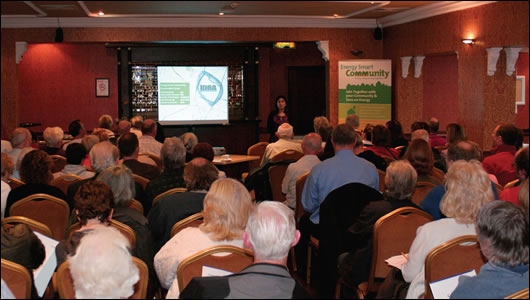
Residents attending a Codema home energy information evening
Greenov could therefore be viewed as a natural progression in terms of suppliers who wish to upskill and expand their existing knowledge-base. As part of the project, Codema will select a panel of experts in Ireland and – together with our European partners – will contribute to the build-up of an emerging northwest European belt of green clusters in the field of energy efficiency renovation of existing buildings, making it even stronger and sustainable in a context of high competitiveness of clusters at national, European and international levels.
There are two main parts to the project that Codema is leading on in relation to both the technical and business aspects. The first part of the project is to develop a knowledge base among suppliers. There are partners from five closely adjacent countries in the northwest of Europe. Each of the partners will contribute a chapter setting out their knowledge and expertise on sustainable refurbishment on a large scale. Thus, there will be five technical chapters:
1. Energy efficient refurbishment – by Codema
2. New eco-products for sustainable refurbishment – by Eco-cluster, Belgium
3. Sustainable renovation/business development opportunities for small and medium enterprises – by Birmingham Chamber of Commerce and Industry
4. New technologies applied to sustainable renovation – by Association pour le Développement des Enterprises et des Competenciés, France
5. Sustainable renovation and engineering, - by Paris School of Engineering
In addition, there will be five case studies demonstrated including a swimming pool, a library, a medieval church, a theatre, and an eco-tech centre. An introduction and a conclusion will be drafted by the Global Environmental Technology Company in Germany and, finally, Codema will prepare an executive summary.
The second part of the project is about the business aspects. In particular it is about supply tender portals, such as www.etenders.gov.ie the web site for public sector procurement in Ireland. This is important because in our current information age, electronic tender services have been established for a growing number of purposes and businesses searching for suppliers have access to globally operating tender platforms.
The Greenov project will evaluate existing electronic tender platforms and assess their usefulness in the area of sustainable renovation in the northwest of Europe. It will develop information on relevant sources and programmes and how to respond to tender notices. Finally, the project also plans to establish a tailor-made supply tender portal specifically designed for the needs of small and medium enterprises in the region.
Codema will host a transnational panel of experts in Dublin next year which will examine concrete case studies and discuss recent technologies. Overall, Greenov will offer a great deal of knowledge to suppliers not only in Ireland but around Europe.
In essence, the Greenov project aims to develop the economic sector of sustainable renovation, mainly by stimulating the innovation capacity of small and medium enterprises working in this field. It will offer training and support services to these green innovation businesses and will strive to improve the knowledge and expertise of sustainable renovation of existing buildings among suppliers. The project will contribute to the transition to low-carbon cities and sustainable economies, and will improve the knowledge and expertise on sustainable renovation of existing buildings.
The Greenov project runs for five years and has received European Regional Development Funding through the Interreg IVB programme.
The main result of the cluster will be the creation of a sustainable renovation supply chain around north-western Europe.
The countries involved in this project are: Ireland, UK, Belgium, Netherlands, France and Germany.
About Codema:
Codema is the energy agency for Dublin. For over ten years, it has been committed to improving the energy efficiency of Dublin homes and workplaces, while also creating sustainable solutions for the city’s infrastructure. It acts as energy adviser to the four Dublin local authorities and also works with the private sector in developing an energy-smart city.
Codema launched its call for sustainable renovation suppliers as part of the Greenov project at the Energy Show at the RDS, 14 – 15 April. Further information on Greenov can be found on Codema’s website, www.codema.ie
Related items
-
 Green shoots for green building
Green shoots for green building -
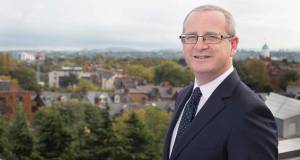 Banking on sustainability
Banking on sustainability -
EIB Group support new low-cost home energy upgrade scheme in Ireland
-
 Retrokit tailors software platform for one-stop-shops
Retrokit tailors software platform for one-stop-shops -
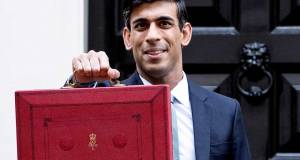 Green groups critical of latest budget
Green groups critical of latest budget -
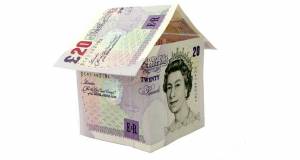 Passive house costs falling, new study finds
Passive house costs falling, new study finds -
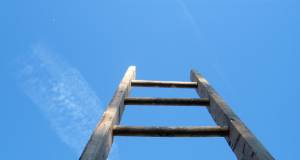 Reaching for the first rung
Reaching for the first rung -
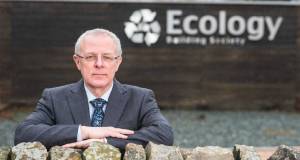 Green finance must be longterm & sustainable — Ecology
Green finance must be longterm & sustainable — Ecology -
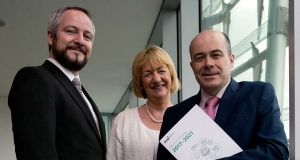 SEAI shifts focus to deep retrofitfit with conference & pilot scheme
SEAI shifts focus to deep retrofitfit with conference & pilot scheme -
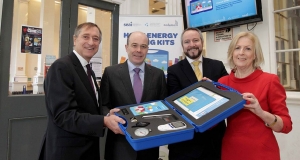 Codema launch energy saving kits in Dublin libraries
Codema launch energy saving kits in Dublin libraries -
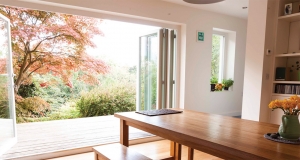 Bristol deep retrofit proves worth with monitoring
Bristol deep retrofit proves worth with monitoring -
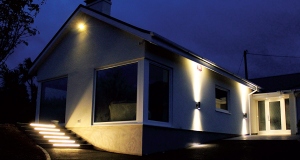 A2 rated extension and upgrade, Co Cork
A2 rated extension and upgrade, Co Cork

